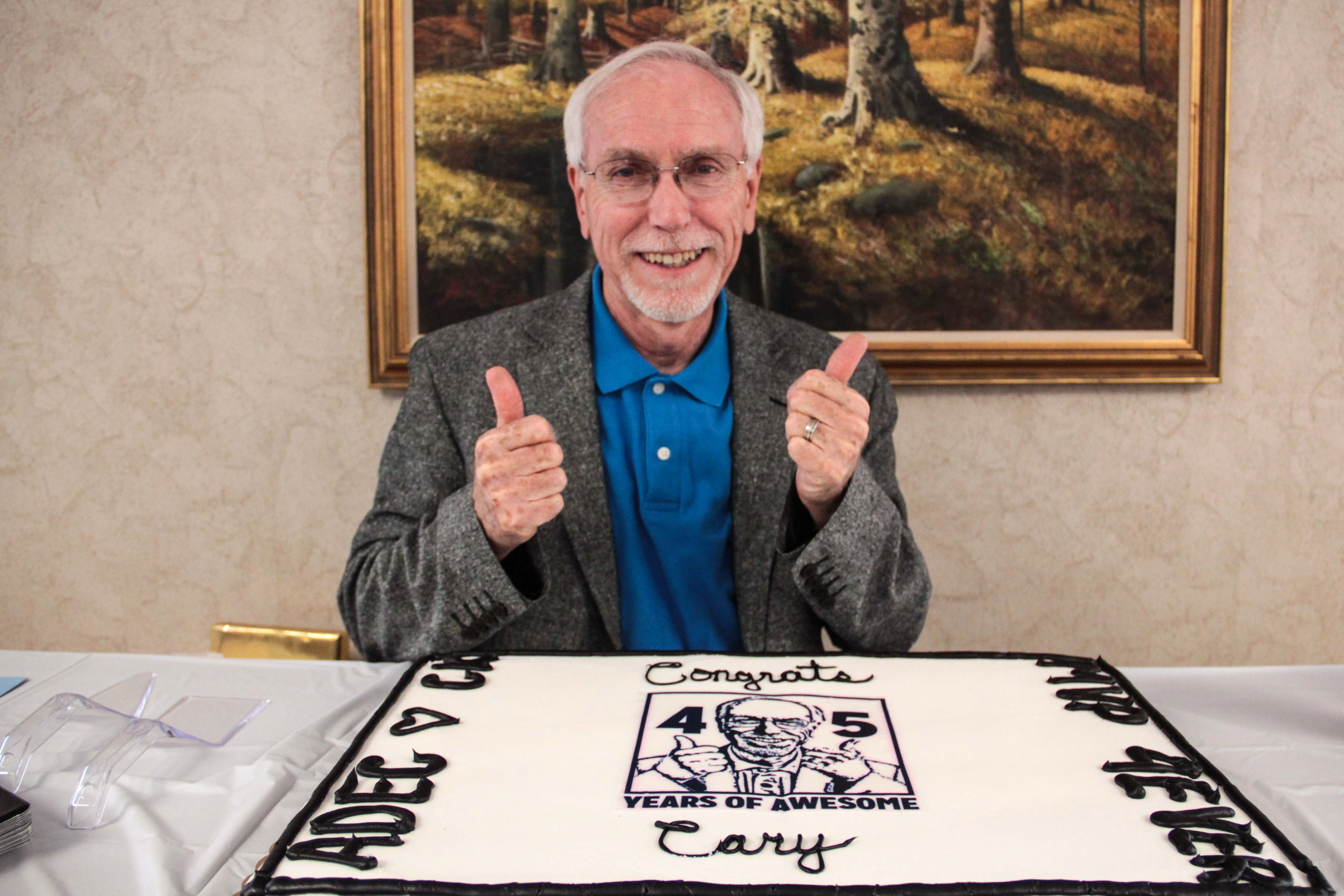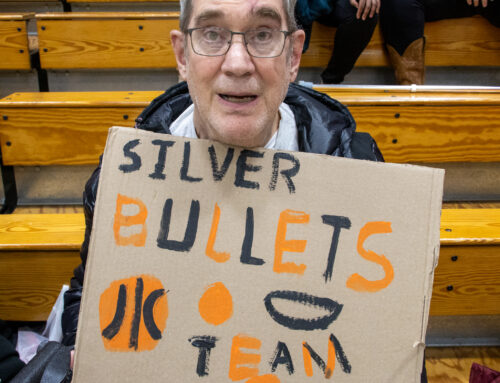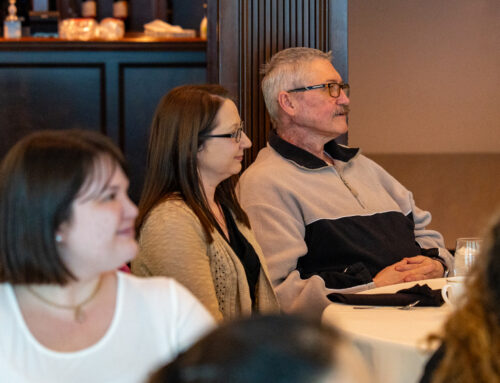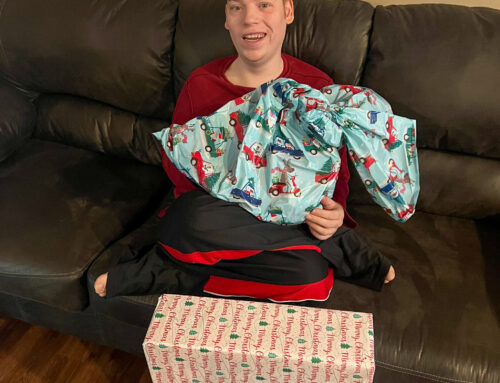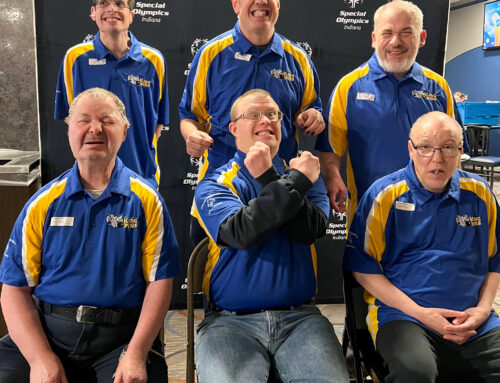 When Cary Kelsey began work at the Sheltered Workshop in 1970, he planned to stay for a little more than two years to satisfy his alternative service for the military and then find a job teaching history.
When Cary Kelsey began work at the Sheltered Workshop in 1970, he planned to stay for a little more than two years to satisfy his alternative service for the military and then find a job teaching history.
Today, 45 years later, Cary is still making a difference at ADEC. When asked why he stayed, Cary says, “I realized I enjoyed working with people with disabilities, so I stayed.”
When Cary started working at the Workshop, he was one of only five or so full-time employees. As a result, he really got to know the founding families of ADEC. He knew their sons and daughters and he understood their vision. “Knowing what they had created, I felt in tune with the mission,” Cary explained.
His challenge in this role at the beginning was figuring out how to make a contribution by teaching the clients the skills they needed to get a particular job done so they could earn a paycheck. When he accomplished this, his passion for helping people with disabilities took root.
In order to better serve people with disabilities, Cary earned a certification in special education in 1973, and then a masters degree in 1977.

From a 1973 newsletter, Cary gives Quinten Helmuth instructions for completing a job. (ADEC file photo)
Cary holds the distinction of being the only ADEC employee to work for all three of ADEC’s parent organizations before they merged. He started off teaching employment skills and working with clients in what would become ADEC Industries. After a few years in that role, the Sheltered Workshop merged with the Rehab Center. Around this time, Cary began teaching functional academics and social skills to adults with disabilities.
When public schools integrated people with disabilities, Aux Chandelles lost a good amount of its clientele. In an effort to learn to serve adults, a group of trainers, including Cary, from the Rehab Center went to work at Aux Chandelles and led functional academics classes. In 1976, the three organizations officially merged, forming the Association for the Disabled of Elkhart County.
“In the 70s, lots of money came in with new programs, so there was a lot to learn,” Cary said as he reflected on the excitement of the era. “At the policy level, there was awareness of the need, and legislators were willing to make decisions.”

Cary sits in his office in the 1980s
In the midst of this tremendous progress, Cary was named Department Director for Developmental and Visual Impairment Services in 1978. In this role, he directed ADEC’s preschool program, developed a teenage parent care program, created ADEC’s day services programming, introduced and facilitated services for the blind, introduced First Steps programming and continued to serve as a functional academic instructor.
Through these roles, Cary learned the importance of customer service at ADEC. “What I find rewarding is figuring out how customer service can be delivered,” Cary explained of his firm belief in the basis of his work. “Helping families figure out what they need, getting information to them. ADEC has done a really good job of helping families make connections. Now it starts with GPS.”
In 2000, Cary began transitioning into a more executive role at ADEC. He served as Protective Services Officer for a year before becoming the Assistant to the President in 2001. In this role, Cary served in an executive capacity, overseeing policies, directing the guardianship program and working with the board on a regular basis. In 2014, he received a promotion to Vice President of Compliance and Guardianship, keeping the same duties. He continues to serve in this position today.

Cary receiving his 20-year service award in 1990. (ADEC file photo)
“I’ve always been fortunate,” Cary said reflecting on 45 years at ADEC. “I’ve gotten to work with great colleagues throughout the years. People move on, but then younger folks come in and pick up the work. ADEC has trained up a lot of leaders.”
As Cary reflects on his time and roles at ADEC, some of his favorite memories have been connected to exit interviews. At the Rehab Center, people gave excellent reviews of the work he and his team had done. “That made me really proud.”
In the vision program, which became a special passion of Cary’s through the years, he would often read reviews from people with recent vision loss who went through independent living services saying things like, “You’ve saved my life,” “You’ve changed my life” or “I’ve learned there’s still life to live.”
“I think everyone’s job here is to be an advocate,” Cary explained. “Learn to be a good listener to clients and families. Only then can we understand advocacy.”

Cary stands with ADEC CEO Donna Belusar during a party in his honor Wednesday, Aug. 5. (ADEC photo by Rod Tackett)
CARY’S ADVICE FOR NEW EMPLOYEES
“I think it’s important for people to see themselves in the bigger picture rather than day to day. Our programs have a lot of identities, but it’s really important to see ourselves as part of ADEC. Part of something bigger.”
WHEN WORK COMES HOME
Cary’s dedication to his work at ADEC permeated into his home life, with his wife and son gaining an understanding and passion for the rights of people with disabilities. When his son, Christopher, was in preschool at the YMCA, he came home crying one day.
The kids in his class were picking on another kid calling him an “ADEC.” Christopher said, “Dad, they don’t know anything.”
Cary talked with his coworkers the next day, and they went out and did a community education program at the YMCA.

